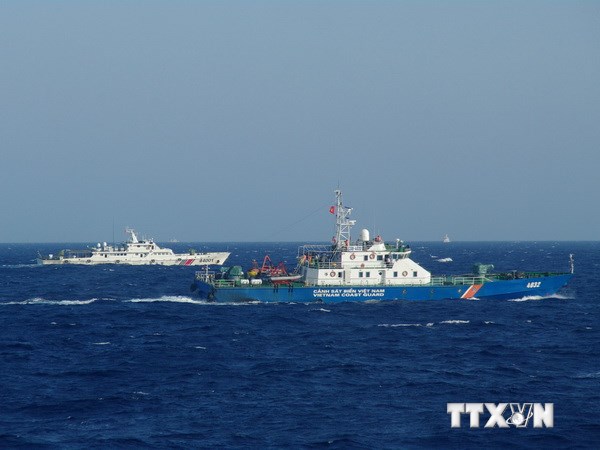Argentine scholar criticizes China’s infringement
VGP – China’s placement of the drilling rig Haiyang Shiyou-981 in the East Viet Nam Sea violates the 1982 UN Convention on the Law of the Sea as the oil rig is located well within Viet Nam’s exclusive economic zone and continental shelf.
 |
China’s move was driven by political motive and aimed at baring its power, noted Mr. Ramoneda, adding that there are two reasons to explain for the move.
The most important reason is that China moved the oil rig into Viet Nam’s waters ahead of the 24th ASEAN Summit held in Nay Pyi Taw, Myanmar on May 10-11 to show Chinese muscles. The move was also calculative as it was made just some days after US President Barack Obama’s Asia tour.
China must withdraw its oil rig and seeks a diplomatic and peaceful solution to the issue, Mr. Ramoneda said.
Regarding the 24th ASEAN Summit, for the first time since 1995, ASEAN issued a stand-alone Statement on a complicated situation threatening peace, maritime security and safety in the East Sea. ASEAN Foreign Ministers expressed their serious concerns over the on-going developments in the East Sea, which have increased tensions in the area.
According to the Chairman’s Statement, ASEAN leaders expressed serious concerns over the on-going developments in the East Sea. They reaffirmed the importance of maintaining peace and stability, maritime security, freedom of navigation in and over-flight above the East Sea.
Meanwhile, the Nay Pyi Taw Declaration calls on all parties to exercise self-restraint and non-use of force, as well as refrain from taking actions that would further escalate tension and to work towards an early conclusion of the COC as reflected in the ASEAN’s Six-Point Principles on the East Sea.
By Hai Minh

